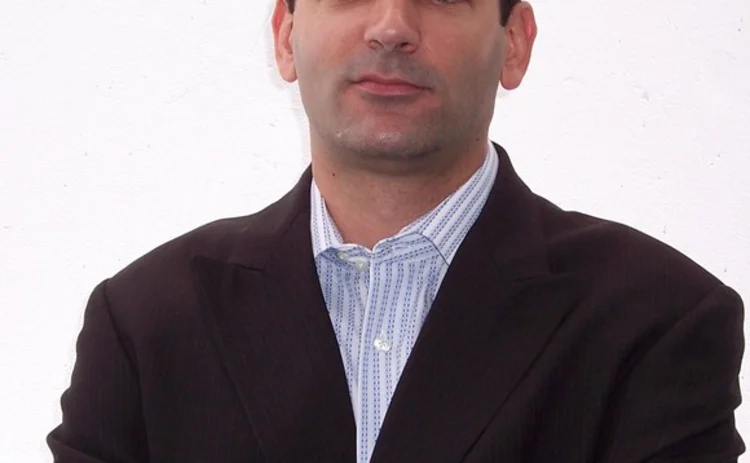Stewart Eisenhart: No More Small Fry

Institutionalization of the hedge fund industry appears to have begun separating the proverbial wheat from the chaff. The window of opportunity for small-tier hedge fund managers with less than $100 million under management to attract investors and execute strategies successfully is rapidly closing, according to claims by a key prime brokerage official as well as data from Hedge Fund Research (HFR).
Justin Fredericks and Mairead Kenny, who oversee US and EMEA capital introduction operations, respectively, for prime brokerage clients at Bank of America’s Merrill Lynch unit, recently told Bloomberg that 20 percent of hedge fund managers—predominantly the smaller ones—may face liquidation in the coming months as capital sources dry up and investors seek “safer” bets with larger, more established fund managers.
In the same article, Bloomberg cited figures from HFR showing that the hedge fund industry is going through its third-worst year since 1990 in terms of annual return rates—93 percent of capital inflows to hedge funds in the second quarter of 2010 went to managers with at least $5 billion under management. Although hedge funds with less than $100 million account for more than 50 percent of the industry, according to HFR, they collectively manage less than 2 percent of industry assets.
Perceptions of Safety
The bottom line, argue the Merrill Lynch executives, is that institutional and pension investors previously playing a major role in the hedge fund boom now increasingly prefer allocating capital to top-tier managers perceived, rightly or wrongly, as less risky.
Are these statistics due simply to difficult market and liquidity challenges following the credit crisis, or do they indicate a longer-term industry shift, wherein established managers reap the lion’s share of business—just as their counterparts in the institutional fund management arena do—and smaller players struggle to launch, and struggle harder to stay open?
As regulators and investors drive hedge funds in a more institutional direction, the market domination of larger managers at the expense of start-up and smallest-tier funds should come as no surprise. With significant industry regulations only just now getting off the ground in the US and still being debated by European Union member states, the full effects of new requirements on managers have yet to be realized.
But clearly, the more regulated the industry becomes, the more vicious a cycle will develop: Large managers with the ability to invest in cutting-edge trading tools and risk management infrastructures will attract more investor capital and capture more alpha, leaving smaller managers to fight over the scraps. Challenged to win decent rates of return, and with performance track records paling in comparison to those of larger managers, smaller funds will in turn find it difficult to make necessary technology investments to properly support their strategies and trading activities.
Vendors Out on a Limb
If the Merrill Lynch executives’ prediction comes about and a hefty number of smaller hedge funds fail next year, and if that portends a permanent decrease in such funds in the years ahead, many technology vendors that have made names for themselves catering to these managers may also find themselves in the lurch once significant portions of their client base go under.
For that matter, one major impetus for software providers to launch hosted versions of their products was to appeal to smaller hedge fund and asset managers unable to maintain on-site capabilities. Fortunately, though, acceptance of application service provider (ASP) and software-as-a-service (SaaS) models has expanded beyond startup and small-tier managers to broader swaths of the investment management industry. More cost-efficient infrastructure should interest any business, regardless of size. As such, hosted software delivery models should prove more resilient if hedge fund institutionalization leads to fewer smaller managers.
Nonetheless, vendors whose core technology offerings target the operational requirements of small hedge funds regardless of how those offerings are delivered may soon find themselves in a struggle against obsolescence.
Only users who have a paid subscription or are part of a corporate subscription are able to print or copy content.
To access these options, along with all other subscription benefits, please contact info@waterstechnology.com or view our subscription options here: https://subscriptions.waterstechnology.com/subscribe
You are currently unable to print this content. Please contact info@waterstechnology.com to find out more.
You are currently unable to copy this content. Please contact info@waterstechnology.com to find out more.
Copyright Infopro Digital Limited. All rights reserved.
As outlined in our terms and conditions, https://www.infopro-digital.com/terms-and-conditions/subscriptions/ (point 2.4), printing is limited to a single copy.
If you would like to purchase additional rights please email info@waterstechnology.com
Copyright Infopro Digital Limited. All rights reserved.
You may share this content using our article tools. As outlined in our terms and conditions, https://www.infopro-digital.com/terms-and-conditions/subscriptions/ (clause 2.4), an Authorised User may only make one copy of the materials for their own personal use. You must also comply with the restrictions in clause 2.5.
If you would like to purchase additional rights please email info@waterstechnology.com
More on Trading Tech
The next phase of AI in capital markets: from generative to agentic
A look at some of the more interesting projects involving advanced forms of AI from the past year.
Will overnight trading in equity markets expand next year? It’s complicated.
The potential for expanded overnight trading in US equity markets sparked debate this year, whether people liked it or not.
WatersTechnology latest edition
Check out our latest edition, plus more than 13 years of our best content.
The total portfolio approach gains momentum: Building the right tech foundation for success
The rationale for the TPA, and the crucial role technology plays in enabling such an approach
Google, CME say they’ve proved cloud can support HFT—now what?
After demonstrating in September that ultra-low-latency trading can be facilitated in the cloud, the exchange and tech giant are hoping to see barriers to entry come down.
Institutional priorities in multi-asset investing
Private markets, broader exposures and the race for integration
BlackRock and AccessFintech partner, LSEG collabs with OpenAI, Apex launches Pisces service, and more
The Waters Cooler: CJC launches MDC service, Centreon secures Sixth Street investment, UK bond CT update, and more in this week’s news roundup.
TCB Data-Broadhead pairing highlights challenges of market data management
Waters Wrap: The vendors are hoping that blending TCB’s reporting infrastructure with Broadhead’s DLT-backed digital contract and auditing engine will be the cure for data rights management.







